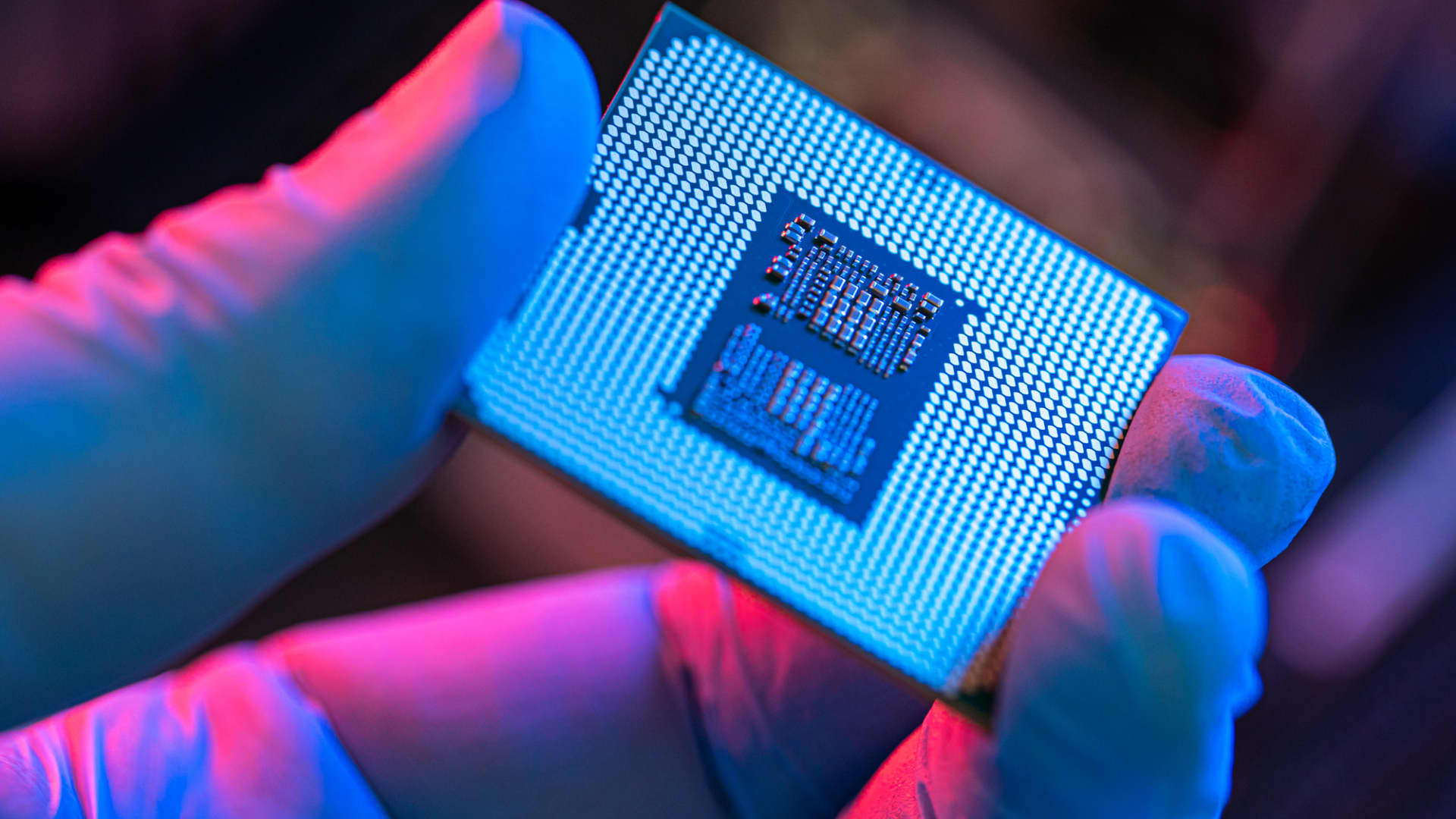UK semiconductor bosses have expressed dismay at the government’s lack of a concrete semiconductor strategy.
Mailsonpignata / 500 px | 500 px | Getty Images
LONDON – Britain announced up to 1 billion pounds ($1.24 billion) in support for its semiconductor industry on Friday as it seeks to boost its domestic chipmaking capacity and prevent further supply disruptions, after bosses at some of the country’s leading companies sought help .
The investment will form part of a 20-year semiconductor strategy – which faces long delays – outlining Britain’s plans to secure its chip supply and guard against national security risks.
The strategy, due to be published later on Friday, outlines a range of measures aimed at growing the UK’s domestic chip industry, reducing the risk of supply chain disruptions and protecting national security.
As part of its strategy, the UK will seek to strengthen cooperation with international partners. This week, the UK and Japan struck a deal in Hiroshima to boost cooperation in defense and semiconductors.
The government will initially invest up to £200 million between 2023 and 2025, before expanding its commitment to up to £1 billion over the next decade, the government said. The funding will be used to improve the talent pipeline and acquire prototypes, tools and business support.
“Semiconductors underpin the devices we use every day and are critical to driving the technology of the future,” Prime Minister Rishi Sunak said in a statement.
“Our new strategy focuses our efforts on areas of strength such as research and design, so we can build a competitive advantage on the global stage.”

“By increasing the capacity and resilience of our world-leading semiconductor industry, we will grow our economy, create new jobs, and stay at the forefront of new technological breakthroughs,” he added.
To prevent disruption from future supply shortages, the government said new guidance would be issued to inform businesses of the risks of supply shocks, while the UK would seek to strengthen cooperation with international partners to improve the resilience of the global chip supply chain.
It added that an advisory group comprising people from industry, government and academia had also been formed to work closely on shared solutions and implementation.
“Applied the Right Way”
instead of matching some The UK is developing a different approach, aimed at boosting areas where it has expertise, given the huge spending pledges put forward by regions such as the US and EU.
Officials concede that it would not make sense for the UK to build its own massive manufacturing plants, such as those run by Taiwanese chip-making giant TSMC to make state-of-the-art chips.
Instead, they focus on other parts of the semiconductor industry, such as intellectual property and the design and production of non-silicon chips.
The UK semiconductor strategy is expected to be published last year. But it faced a series of delays due to political instability. The country’s semiconductor bosses have expressed dismay at the government’s lack of a specific semiconductor strategy.
While the U.S. and the European Union have pledged billions of dollars in support for their respective chip industries, Britain’s strategy has faced delays and setbacks following multiple changes in government following the resignations of former prime ministers Boris Johnson and Liz Truss.
Pragmatic Semiconductor, a Cambridge, U.K.-based start-up that makes non-silicon chips, warned earlier this year that it could be forced to relocate overseas if the government doesn’t release plans for the industry soon. IQE, a microchip company in the Newport semiconductor “cluster” in Wales, has also warned it could be forced to relocate to the US or the EU if the government does not act soon.
Scott White, founder of British chip company Pragmatic Semiconductor, said the government’s £1bn pledge – albeit a small amount compared with those in the US and EU – “actually feels like the kind of technology that UK industry needs. the correct number”. However, he warned that funds need to be “used in the right way”.
“Again, if it’s just a repackaging of something else that exists, that’s not going to be particularly helpful,” White told CNBC earlier this week.
The UK is a low-key player in the global chip market, focusing on the design, intellectual property, research and manufacturing of advanced compound semiconductors.

It is home to one of the most coveted semiconductor-related assets, chip designer Arm. Cambridge-based Arm licenses chips used in about 95 percent of the world’s smartphones.
The country is also known for its role in the development of ultra-thin semiconductor wafers made from graphene.
Semiconductors and the supply chains behind them, mostly in East Asia, have become a thorny issue for governments around the world after global shortages caused supply problems at major automakers and electronics makers.
The Covid-19 pandemic has exposed an overreliance on semiconductor components from Taiwanese and Chinese manufacturers. That dependence has become fraught with strains amid rising tensions between China and Taiwan.
Taiwanese semiconductor giant TSMC is by far the largest producer of microchips. Its chipmaking prowess is the envy of many developed Western nations, and they are taking steps to boost domestic chip production.
In the US, President Joe Biden signed the CHIPS and Science Act, a $280 billion package that includes $52 billion in funding to boost domestic semiconductor manufacturing.
At the same time, the EU 43 billion euros approved ($45.9 billion) for Europe’s semiconductor industry, which aims to produce 20 percent of the world’s semiconductors by 2030.
British lawmakers have said the government’s lack of a similar strategy is hurting the country’s competitiveness. On Feb. 3, lawmakers on the Business, Energy and Industrial Strategy (BEIS) committee called on the government to take action against the semiconductor industry, calling the lack of a coherent microchip strategy an “act of national self-harm.”


